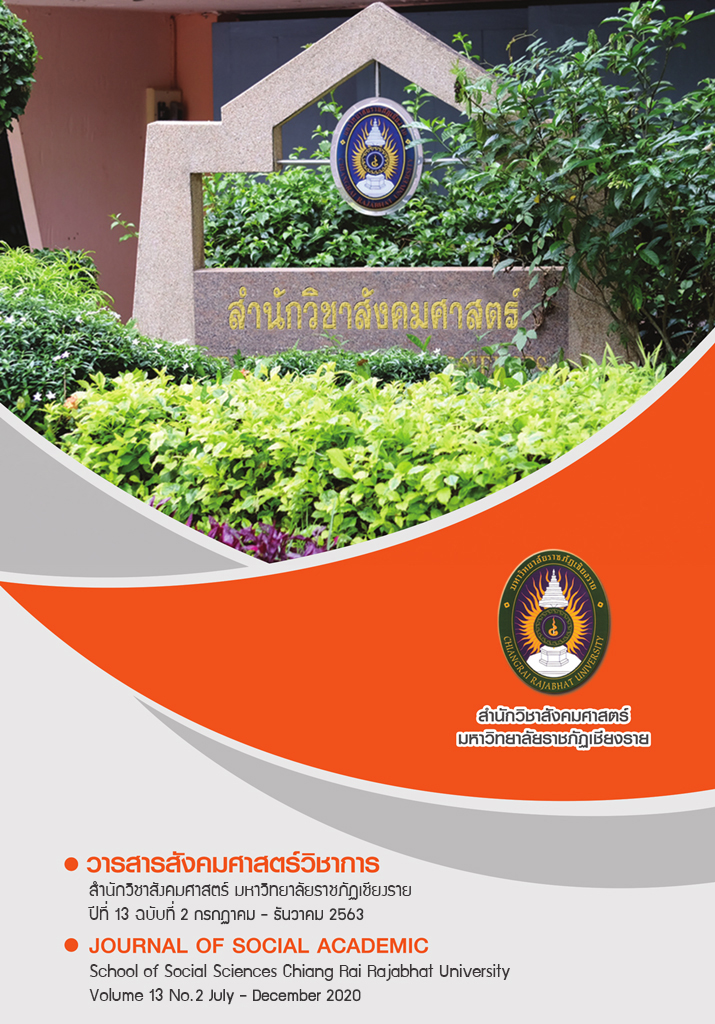English Oral Communication Skill Improvements and Needs from Foreign Tourists Engagement Perspective as Duty Notion by Thai Airport Passenger-handlers and Flight Attendants of Thai Aviation and Airports
Main Article Content
บทคัดย่อ
Most aviation and airports industries expect their competent passenger-handlers and flight attendants recruits to meet the following requirement: recruits must have good command of the English language. This study aimed to investigate English oral communication skill improvements and needs by Thai airport passenger-handlers and flight attendants of Thai aviation and airports from foreign tourist engagement perspective as duty notion. Documents and researches involving English communicative English language using in the aviation and airport services were collected as a secondary resource. The documents and researches were analysed to figure out the improvements and needs as the aim. The findings reflected that English oral communication skill improvements and needs through the experiences of the airport passenger-handlers and flight attendants in Thailand regarding with their challenges in performing English oral communication in the workplace were as follows: 1) problems regarding English communication of flight were problems concerning language functions, problems concerning English usage, and areas of language difficulties encountered by flight and ground attendants, 2) the English language skills and structural knowledge were listening and speaking, reading, pronunciation, using correct and appropriate grammar, using polite and appropriate language, writing everyday language and conversation, communicative skills, being able to use various sentence patterns and words and problem-solving skills. In addition, foreign tourist perspective reflected by flight and ground attendants were: 1) the attendants could not answer the passengers' question correctly when asked about information that the flight attendants had not studied in the basic training course; the information included ticketing, connecting flight, VAT refunds and ground services, 2) due to their strange accents and pronounce words correctly of the attendants, the passengers and their colleagues did not understand them.
Article Details
รายละเอียดของลิขสิทธ์
เอกสารอ้างอิง
Aldohon, H.I. (2014). English for Specific Purposes (ESP) for Jordanian Tourist Police in Their Workplace: Needs and Problems, Procedia – Social and Behavioral Sciences 7(11), 2014, 56-67.
Chenaksara, P. (2005). Needs Analysis for English Communication Skills of Thai Airways international Cabin Crew.M.Sc. Thesis in Development Communication, Graduate School, Kasetsart University.
Dibakanaka, A., Hiranburana, K.(2012). Developing an e-Learning Competency-Based English Course Module for Chief flight attendants, International Journal of Scientific and Resarch Publications, vol. 2(8), August 2012, 1-14.
Nunta, S.(2008). A case of the Needs for English Training of Thai Airways Executive Class Flight Attendants.M.A.Thesis in English Language Teaching, Graduate School of English, Assumption University.
Premtanjit G. (2003). Analysis of Thai airways international Flight Attendants' Language Difficulties to provide practical suggestions for language training.M.A. Thesis in Applied Linguistics.Faculty of Graduate Studies, Mahidol University.
Rahman M. (2015). English for specific purposes (ESP): A Hollistic Review, UninversalJournal of Educational Research, vol 3 (1) , 2015, 24-31.


